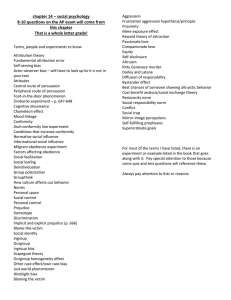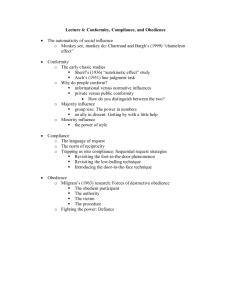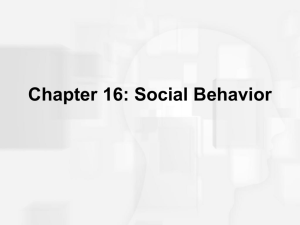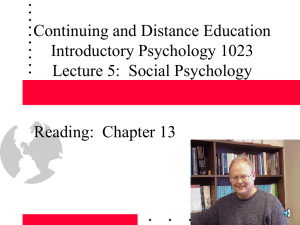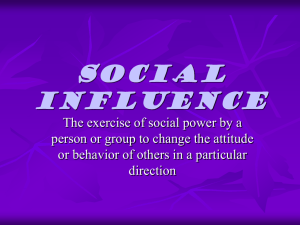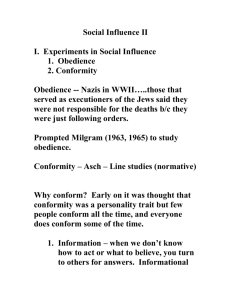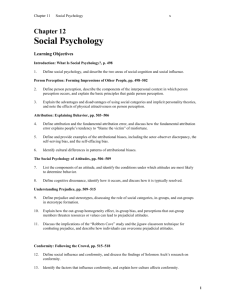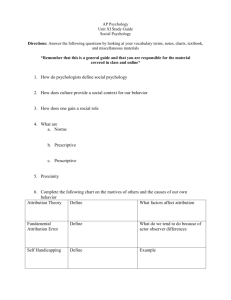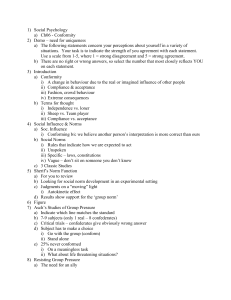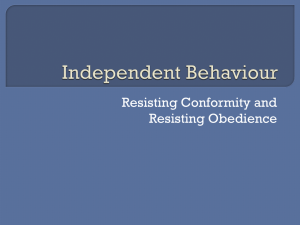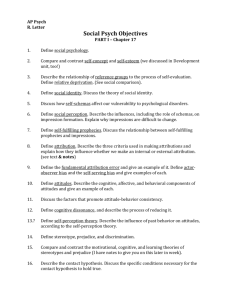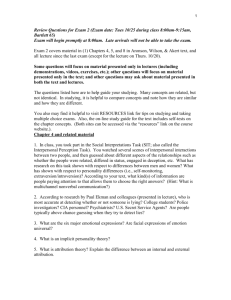Chapter 14: Psychology in Our Social Lives - Home
advertisement
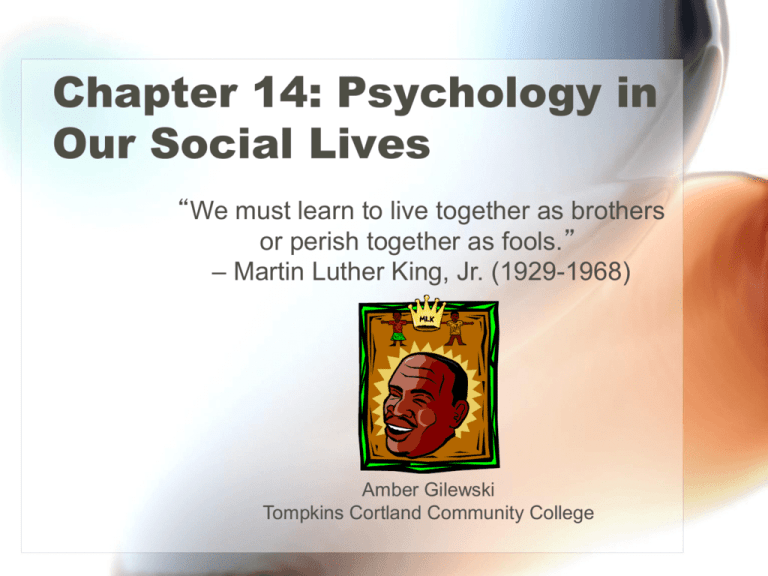
Chapter 14: Psychology in Our Social Lives “We must learn to live together as brothers or perish together as fools.” – Martin Luther King, Jr. (1929-1968) Amber Gilewski Tompkins Cortland Community College Attribution Processes: Explaining Behavior • Attributions – inferences made about the causes of events and behaviors – Internal vs. External: causes related to personal dispositions vs. situational/environmental causes • Biases in attributions – Fundamental attribution error - observers’ bias in favor of internal attributions in explaining others’ behavior More Biases in Attribution – Defensive attribution – tendency to blame victims for their misfortune – Self-serving bias - tendency to attribute one’s success to personal factors & failure to situational factors • Cultural influences -Western cultures: fundamental attribution bias & self-serving bias -Japanese culture: self-effacing bias; more selfcritical & accept more personal responsibility Yielding to Others: Conformity • Conformity – Solomon Asch (1950s) – Classic experiment: participants asked to judge length of 3 lines; actually testing conformity to see if others would answer similarly; 76% conformed at least once • Group size: larger groups influence conformity • Group unanimity: strongly influences conformity; people may also follow lead of a dissenter • Replication study findings: less conformity now, individualistic societies conform less, people conform more in certain situations, variety of reasons for conformity, positive & negative sides to conformity, suppresses critical thinking Yielding to Others: Obedience • Obedience – Stanley Milgram (1960s) – Controversial landmark experiment: learner & teacher; administering shocks for incorrect answers; actually testing obedience; 65% administered all shocks • Would people obey an authority figure & violate their own ethical standards? • Subsequent study findings: people would disobey under certain conditions, but NOTHING the victim did made any difference • Conclusions: obedience relates to situation, not personality & relationship to authority influences it • Evaluating the study: very controversial due to deception and psychological distress; personality traits may be related to obedience; invalid to compare to Nazi ideology; made us more aware of uncritical obedience & its implications Power of the Situation: SPE • Philip Zimbardo (1971) Stanford Prison Experiment – Students were assigned roles of prisoners or guards – Conducted in basement of psychology dept. @ Stanford University – Was supposed to last 2 weeks – Had to be ended after 6 days – Why? – Similarity with Abu-Ghraib prison scandal in Iraq Behavior in Groups The bystander effect - Darley and Latane (1968) -Less likely to help when part of a group vs. alone -Ambiguity also plays a role Diffusion of responsibility – everyone thinks someone else will help; each person feels less responsible Highly emotional crowds may induce “mob behavior” Deindividuation – Reduced self-awareness and lower concern of social evaluation Altruism and the Bystander Effect • Factors that influence decision to help – Good mood – Empathic – Believe an emergency exists – Assume responsibility to act – Know what to do – Know the people who need help – Similarity to people who need help Behavior in Groups • Group productivity and social loafing: productivity goes down as group size increases; reduced effort working in groups vs. alone • Decision making in groups -Polarization: extreme decisions influenced by discussions of dominant view • Groupthink - group has an illusion of invulnerability - group self-censors - group pressures dissenters to conform - group creates an illusion of that they are unanimous
